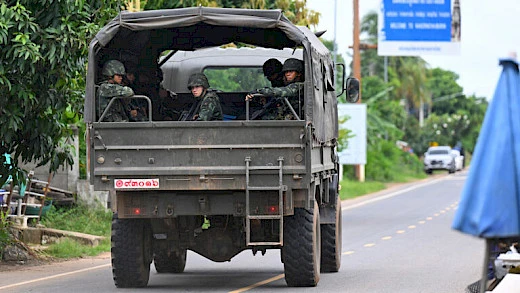Armed Conflict Between Thailand and Cambodia

On the morning of July 24, intense clashes erupted along the disputed border between Thailand and Cambodia. Fighting broke out near the Ta Muen Thom temple, where both sides used heavy artillery, multiple rocket launch systems, and aircraft. Thailand deployed F‑16 fighter jets to strike Cambodian positions. Each side accuses the other of provocation. Cambodia claims that Thailand violated its airspace, while Bangkok insists that Cambodian forces were the first to open fire.
According to the latest reports, at least 16 people have been killed in the fighting, most of them civilians. More than 100,000 people were forced to flee their homes. Cambodia struck residential areas, including a gas station in Thailand’s Sisaket Province, causing numerous casualties. In response, Thailand attacked Cambodian bases and artillery positions.
The situation is further exacerbated by an internal political crisis in Thailand. After a leaked recording of a conversation between the daughter of former Prime Minister Thaksin Shinawatra and the Cambodian leader, the ruling Pheu Thai Party has faced protests and scandals. Prime Minister Paetongtarn Shinawatra has been temporarily suspended. Some experts believe the conflict is being used by both countries to distract from internal issues and to demonstrate political strength.
The international community responded urgently to the escalation. Cambodia appealed to the UN Security Council, which is preparing for an emergency meeting. The US, China, France, the EU, Australia, and Malaysia have called for an immediate ceasefire. However, Thailand rejected proposals for international mediation, stating that it would resolve the matter exclusively through bilateral talks.
This is the most serious escalation in relations between the two countries in the past two decades. The conflict could escalate into full-scale war if no agreement is reached. The escalation affects areas that have historically been disputed, including the Preah Vihear temple, which was awarded to Cambodia by the International Court of Justice in 1962 but continues to provoke discontent among parts of Thai society.


